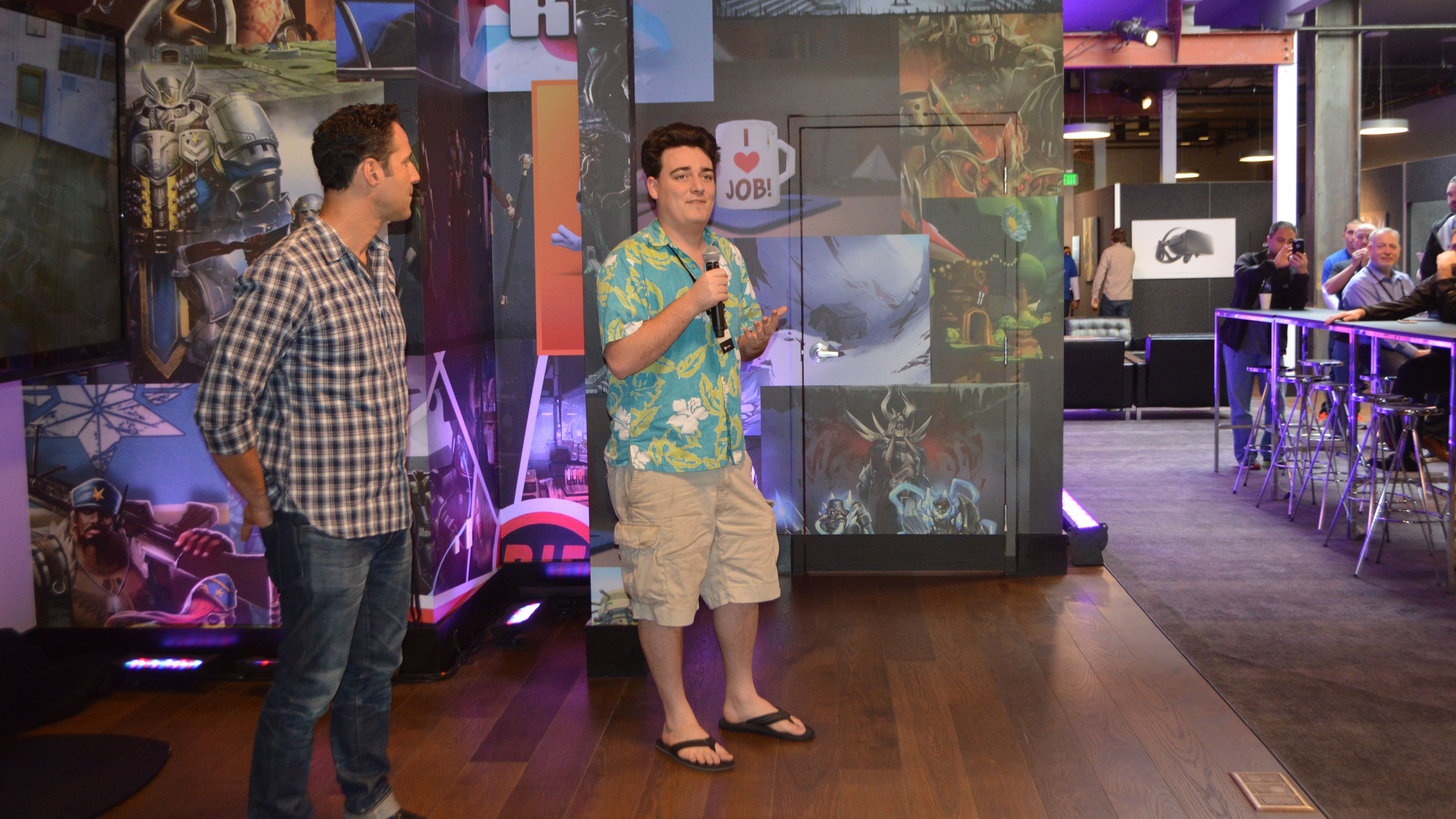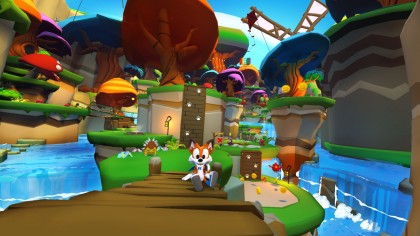Why Oculus isn't trying to be Nintendo when it comes to game development
And that nagging tether question

Dressed in a Hawaiian shirt, shorts and sandals, Palmer Luckey seems supremely calm, even happy, as journalists play the launch titles for his invention, the Oculus Rift.
Releasing on March 28, it's the games and various other experiences that will make Rift a must-have piece of tech for consumers - or not.
I played a handful of Rift games at GDC 2016 and was blown away by their quality and the utter enjoyment I felt experiencing them. One thing developers I spoke with kept coming back to was how good Oculus is to work with, and I think it shows in their creations.
I wanted to pick Palmer's brain as to why Oculus is prioritizing developers to the point that they own their own IP, as well as ask him the nagging tether question, plus a whole lot more.
Techradar (TR): In speaking with the developers here, they all say, "Oculus is a great partner, is very supportive and awesome to work with." Why is it important for Oculus to prioritize developers?
Palmer Luckey (PL): Well, I agree with them, we are great. (laughs)
We really prioritize working with external developers over trying to build everything internally. We are building some things internally, but we're not trying to be a Nintendo where we're doing the majority of development internally, and that's for a few reasons.
Sign up for breaking news, reviews, opinion, top tech deals, and more.
One is that we want there to be a successful third-party ecosystem of developers who are succeeding outside of Oculus. Because if they can succeed, it means that they're more likely to go on and make VR games in the future. If we can help them make a VR game now, they're more likely to make one in the future, even if they aren't working directly for us, and that's a net win for us.
Another thing we do is, when we work with Crytek, for example, all of the code that we mise in CryENGINE for The Climb, they own all of that code, all the license, and that goes right back into their game engine, which means that it helps them make future VR games and it helps anyone who's using CryENGINE make VR games.
I think virtual reality will get to the point where it doesn't have this stigma of being this crazy, cyberpunk, science-fiction technology
Another thing we do is all the developers we're working with, we're not taking any of their IP. All of them are retaining full ownership of their IP, even a lot of the games that we're fully funding. That makes it more likely, again, that they're going to go out and make more VR games.
So, our goal here is not just make a bunch of games ourselves - it's to make a bunch of stuff using our resources that ensure a long-term ecosystem. That kind of kickstarts a virtual reality ecosystem that's healthy for everybody.
TR: Was that the plan from the beginning, or did it evolve over time?
PL: Originally, when we were thinking about funding titles and building things, we were mostly thinking about doing it ourselves. But, as time passed, we realized it makes more sense to help that external ecosystem and to work with teams that are already built, already established, already working together, rather than trying to pull together your own crack team to make good stuff.
And that's really paid off. That's really the only reason we're showing 41 games here [at GDC] – it's because we've taken that strategy. We never would have been able to do that on our own no matter how much money we put into it.

TR: Is there one type of game or content that you're personally most excited to see the development of and see where it's going?
PL: No one thing in particular, but Lucky's Tale and EVE Valkyrie are particularly close because those games have been in development since the very early days. Paul Bettner [CEO of Playful] and I started talking about VR before we even launched our Kickstarter. We were both interested in VR, and he knew I was doing some work on the side, so he's been into VR for a very long time. So it's very cool to see how far they've come over four years to where they are today.
TR: VR used to be thought of in a more rigid, traditional sense, and Oculus Rift is transforming how we think about virtual reality. What are you're thoughts on that?
PL: We're trying to make it cool and mainstream and something everybody wants to use. Now, what we have today isn't that, but it's a good step on the path.
Eventually we want virtual reality to be used by hundreds of millions or billions of people. What we have today is never going to be used by that number, but as the cost goes down, as the performance goes up, as it becomes something that's light, comfy and easy to wear every day, I think virtual reality will get to the point where it doesn't have this stigma of being this crazy, cyberpunk, science-fiction technology, and it actually becomes something that people use everyday.

Michelle was previously a news editor at TechRadar, leading consumer tech news and reviews. Michelle is now a Content Strategist at Facebook. A versatile, highly effective content writer and skilled editor with a keen eye for detail, Michelle is a collaborative problem solver and covered everything from smartwatches and microprocessors to VR and self-driving cars.